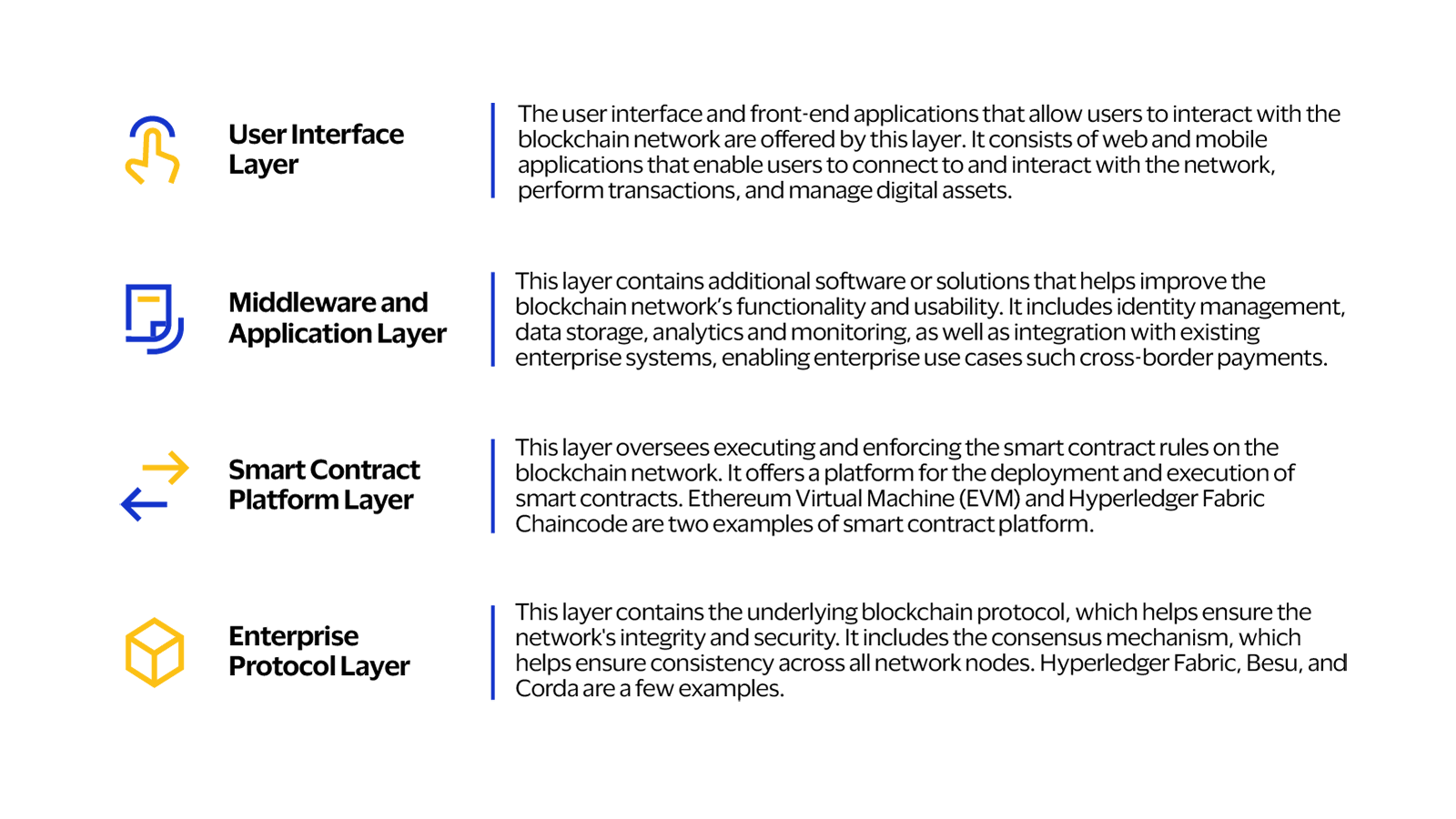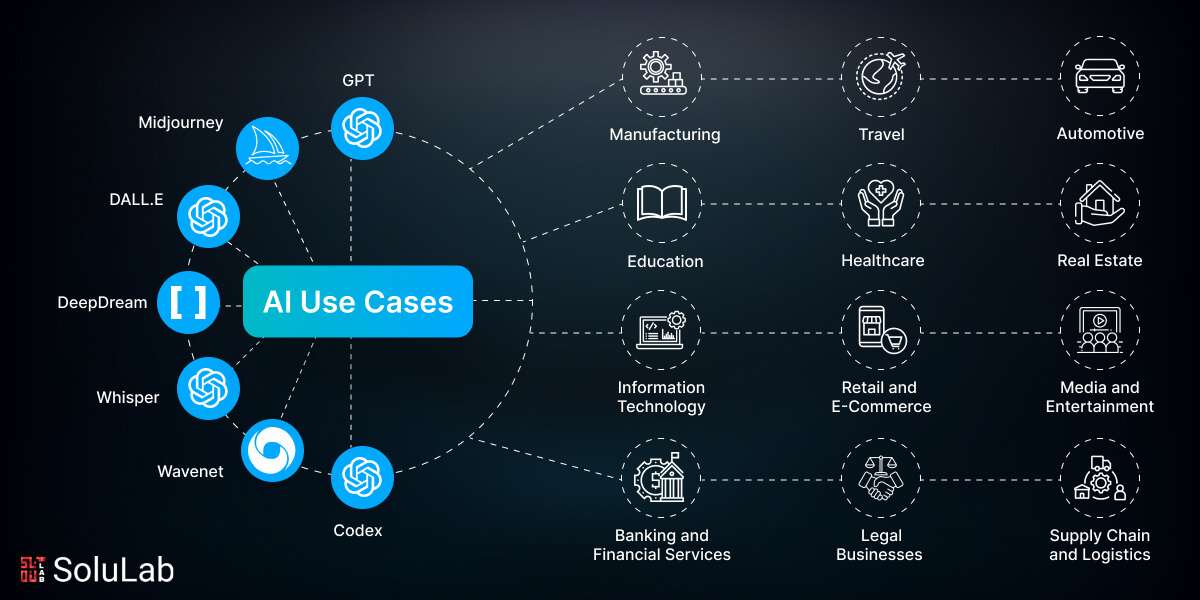Imagine boosting your business’s efficiency and security while cutting costs. Sounds like a dream, right?
You might think that this is only possible for tech giants, but the reality is that blockchain technology is reshaping industries for businesses of all sizes. Have you ever wondered how companies like yours are successfully integrating blockchain into their operations?
We’re diving into real-world enterprise blockchain integration case studies. You’ll discover how organizations have transformed their processes, improved transparency, and gained a competitive edge. These insights aren’t just for tech enthusiasts; they’re for anyone looking to innovate and thrive. Keep reading to unlock the secrets that could propel your business into the future.
What Is Enterprise Blockchain?
Enterprise Blockchain is a special type of technology. It keeps data safe and private. Companies use it to share information. It builds trust without needing a middleman. Businesses love its security and transparency. They can work together without worries. No one can easily change or delete data. This makes Blockchain very reliable.
Many industries use Blockchain today. Banks, health, and supply chains are examples. Each one finds it helpful in different ways. They save time and money. Blockchain makes processes efficient. It’s a useful tool for modern businesses.

Benefits Of Blockchain In Enterprises
Blockchain offers strong security for data. Businesses can trust their systems more. Data is safe from hackers. Information is stored in blocks. Each block is connected to the next. This makes it hard to change data. Transparency is another benefit. Everyone can see the changes. This builds trust among partners. No one can hide information.
Efficiency improves with blockchain. It removes the need for middlemen. Transactions are faster. Costs go down. Smart contracts automate tasks. They save time and reduce errors. Enterprises can focus on important work. Flexibility is also a plus. Blockchain can be used in many industries. From banking to supply chains.
Case Study: Supply Chain Optimization
Large companies face supply chain problems. Products get lost. Orders delay. Managers struggle with tracking. Supply chain visibility is poor. Costs are high. Trust issues arise. Blockchain offers a solution. It promises transparency and security. Companies need better data. They need to cut down waste. Efficiency is key for success.
Blockchain records every transaction. Data is stored securely. Companies use smart contracts. These automate processes. Errors reduce. Costs go down. Blockchain connects suppliers. It links manufacturers. Everyone sees the same data. This builds trust. Real-time tracking becomes possible.
Companies see big changes. Costs drop significantly. Efficiency improves across the chain. Products arrive on time. Delays reduce. Customer satisfaction rises. Trust between partners strengthens. Managers make better decisions. They use accurate data. Waste is reduced. Profits increase. Blockchain helps them grow.

Case Study: Financial Services Transformation
Many banks worried about security. Blockchain seemed new and complex. They feared data breaches. Costs were another big concern. Implementing blockchain might be expensive. Also, staff needed training. They had to learn new skills. Trust was a big issue too. Would blockchain be reliable?
Banks started with small projects. They tested blockchain in safe areas. Step by step, they gained trust. Training programs were set up. Staff learned new skills. Costs were managed with careful planning. Each step was analyzed for success. Feedback was important. It helped improve the process.
Success was measured in many ways. Transaction speed was faster. Costs were reduced significantly. Security improved a lot. Data breaches went down. Staff became more confident. Customers felt safer too. Overall, blockchain improved services. Banks saw better results.
Case Study: Healthcare Data Management
Healthcare needs secure and efficient data management. Patient records must be protected. Data should be easy to access for doctors. Sharing medical records quickly is important. Errors in data can cause big problems. Hospitals need a reliable system to avoid mistakes.
Blockchain offers a secure way to manage data. Information is stored in a digital ledger. It is safe and cannot be changed. Only authorized people can see the data. This makes data safe and private. Sharing information is faster and easier with blockchain.
Hospitals saw many improvements with blockchain. Data is more secure and reliable. Doctors access patient records quickly. Errors in records reduced greatly. Patients feel more confident about their data. Healthcare services are now more efficient.
Key Lessons From Successful Integrations
Some companies see big gains with blockchain. Walmart uses it to track food. This helps find where food comes from. It makes food safer and fresher. IBM helps them with this. Maersk, a shipping company, uses blockchain too. It tracks shipping containers. This makes shipping fast and easy. De Beers uses blockchain to track diamonds. It shows each diamond’s journey. This stops fake diamonds from entering the market.
Blockchain helps with trust. It keeps data safe and clear. Companies find it useful. It works best for tracking and security. Many industries can use it. It saves time and money. Businesses should plan well. Good planning makes blockchain work better. Picking the right partner is key. IBM and Microsoft are popular choices. They know blockchain well.
Future Of Blockchain In Enterprises
Blockchain is changing how businesses work. Many companies use it for safety. It helps keep data secure and unchanged. Businesses can share information safely. This makes work faster and better. Companies also use blockchain for tracking. They can follow where things come from. This is good for food and clothes.
Smart contracts are popular too. They work like a real contract but online. No need for a middleman. It saves money and time. People trust blockchain because it is transparent. Everyone sees the same information. No secrets.
In the future, more businesses will use blockchain. It helps them do things better. With blockchain, the future looks bright for enterprises.

Frequently Asked Questions
What Is Enterprise Blockchain Integration?
Enterprise blockchain integration involves incorporating blockchain technology into business operations. It enhances transparency, security, and efficiency. Companies use it for supply chain management, data sharing, and secure transactions. Successful integration requires understanding blockchain’s benefits and aligning them with business goals.
It’s transforming industries by streamlining processes and building trust.
How Does Blockchain Benefit Enterprises?
Blockchain offers several benefits to enterprises, including improved transparency, enhanced security, and streamlined operations. It reduces fraud by providing a tamper-proof ledger. Transactions become faster and more reliable, reducing costs. Companies can leverage blockchain for better data management and collaboration.
This technology is revolutionizing traditional business models.
Which Industries Are Using Blockchain Integration?
Blockchain integration is prominent in industries such as finance, healthcare, supply chain, and logistics. Financial institutions use it for secure transactions and data integrity. Healthcare providers implement blockchain for patient data management. Supply chains benefit from transparency and efficiency. These industries are leveraging blockchain to solve complex challenges.
How Can Blockchain Improve Supply Chain Management?
Blockchain improves supply chain management by enhancing transparency and traceability. It provides real-time data sharing among stakeholders. This technology reduces errors and fraud, ensuring product authenticity. Companies can optimize inventory management and logistics through blockchain. By tracking goods from origin to destination, it builds trust among partners.
Conclusion
Enterprise blockchain is reshaping industries worldwide. These case studies highlight real-world applications. Businesses leverage blockchain for security, transparency, and efficiency. Challenges exist, but benefits often outweigh them. Companies innovate and adapt, embracing blockchain technology. Success stories inspire others to explore integration.
Real examples show blockchain’s potential in diverse sectors. Future possibilities are exciting, with new developments on the horizon. Blockchain continues to evolve, promising more opportunities. Stay informed and consider how blockchain can impact your industry. Embrace the change and explore its potential for growth.
Read More:
- Network Automation Tools ROI: Boosting Efficiency & Savings
- Noise‑Cancelling Earbuds Battery Life: Maximize Your Usage
- Ci/Cd Pipeline Tools Comparison: Boost Your DevOps Efficiency
- Serverless Vs Containerized Workloads: A Comparative Guide
- Vr Content Creation Tools 2025: Revolutionize Your Creations
- Best Gaming PC Build under $1500: Ultimate Performance
- Best Cross‑Platform Mobile Frameworks 2025: Top Picks
- Javascript Frameworks Benchmark 2025: Speed & Performance

